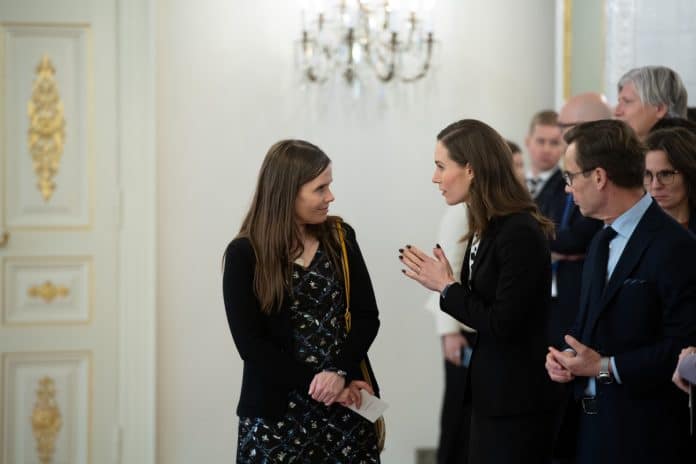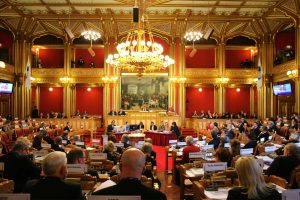
The International Day of Parliamentarism, which is celebrated every year on 30 June, provides a good opportunity to review the progress parliaments have made in achieving key goals. Especially important is the question of the representativeness of parliaments: are they doing enough to include women and young members of parliament?
Celebrating an International Day of Parliamentarism is especially important now as trust in political institutions is waning and democracy faces challenges from populist and nationalist movements. To ensure that democracy flourishes, strong, transparent, accountable, and representative parliaments are essential.
Why is youth participation in parliaments so important?

Considering that future generations will have to live with the consequences of the political decisions that are being made today, it is only fair that they are a part of the decision-making process. Yet young people are underrepresented in parliaments worldwide. Half the world’s population is under 30 years old. However only 2.6% of Members of Parliament globally represent this age group.
The Inter-Parliamentary Union (IPU) is actively working to reverse this trend, and they have mapped out several measures to achieve this. Among their suggestions is implementing youth quotas in parliaments, aligning the age requirement for holding parliamentary office with that of the voting age and offering more mentorship to young aspirants to political offices.
Nordic exception
In the Nordics, young people are relatively well-represented in parliaments. Norway, Sweden, Iceland and Denmark are all on the list of the top twenty youngest parliaments in the world based on the percentage of parliamentarians under 30.

Norway has the highest proportion of young politicians in the world with 13.6% of the parliamentarians being 30 or under, according to data published by the Inter-Parliamentary Union (IPU). Norway do not only have young parliamentarians, but also young people have been known to take on important roles in the government. An example of this is Emilie Enger Mehl, who became Norway’s youngest Minister of Justice when she took on the role as a 28-year-old in 2021.
Norway is still facing some challenges when it comes to young participation in politics. According to the Freedom of Expression Commission freedom of expression in Norway is strong, but there are some important challenges which particularly affect young people. Young people are less likely to want to express their opinions out loud and younger people are more vulnerable to harassment than older people. Additionally, young people may be afraid of not being taken seriously according to the Commission’s report.
Youngest member of parliament

Sweden has the 17th youngest parliament in the world with 6.6% of the parliamentarians being 30 or under, according to data published by the Inter-Parliamentary Union (IPU). Sweden also holds the record for the world’s youngest Member of Parliament, which was set by the then 18-year-old Anton Abele in 2010. Sweden do not only have young parliamentarians, but also young people have been known to take on important roles in the government. An example of this is Romina Pourmokhtari, who became Sweden’s youngest-ever minister when she became Climate and Environment Minister at the age of 26 in 2022.

Ane Cecilie Blichfeldt/norden.org
Iceland has the 9th youngest parliament in the world with 7.9% of the parliamentarians being 30 or under, according to data published by the Inter-Parliamentary Union (IPU). Gunnhildur F. Hallgrímsdóttir became the youngest person in Iceland’s history to be seated in the parliament, at 19, in January 2022 when she became a substitute member for Björn Leví Gunnarsson.
Old parliament, young ex-PM

Finland has the 55th youngest parliament in the world with only 3.5% of the parliamentarians being 30 or under, according to data published by the Inter-Parliamentary Union (IPU). Although Finland has the oldest parliament out of the Nordics, it still is above the worldwide average which is 2.8%. The young age of Finnish politicians has previously gained attention worldwide when Sanna Marin became the youngest prime minister in the world in 2019 as a 34-year-old.

Denmark has the 11th highest proportion of young politicians in the world with 7.8% under 30 in the parliament, according to data published by the Inter-Parliamentary Union (IPU). The youngest Member of the Danish parliament is Helena Artmann Andresen, who was 21 when she was elected in November 2022.





